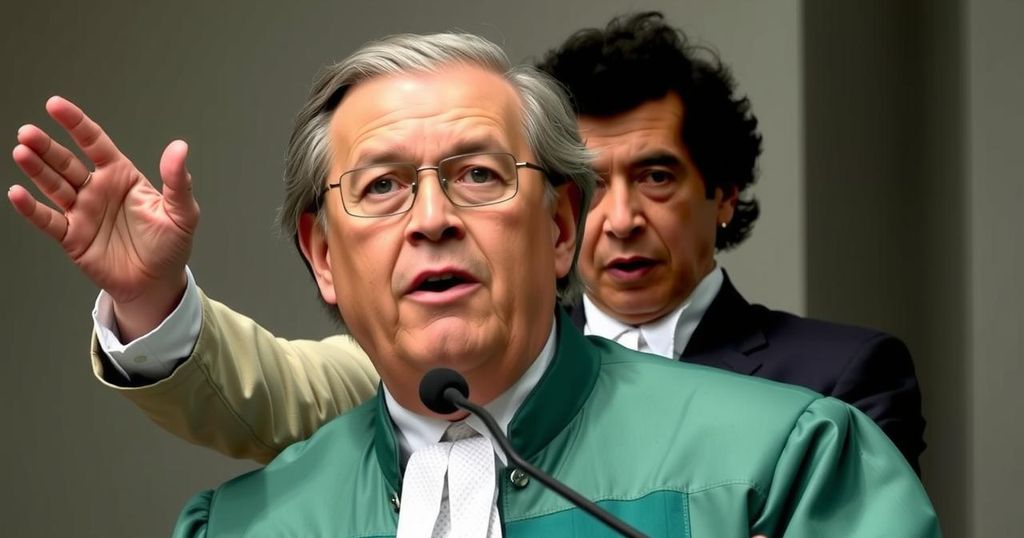Bolivia’s Judicial Elections: A Lesson for Mexico’s Justice Reform

Bolivia’s unique system of electing senior judges faces criticism for politicizing the judiciary, resulting in public dissatisfaction and apathy during electoral processes. As Mexico prepares for similar judicial elections, the Bolivian case serves as a critical examination of potential pitfalls in the pursuit of judicial reform under current political pressures.
In Bolivia, electoral campaigning may be banned, yet candidates have found ingenious ways to promote themselves through various means, such as branding their images on snack packaging. This trend occurs amid a backdrop of public indifference to judicial elections, which Bolivia uniquely conducts to appoint senior judges. In light of recent judicial reforms, Mexico is poised to adopt a similar system, echoing past Bolivian experiences under former President Evo Morales, which raised concerns about politicization in the judiciary.
This election, termed a milestone in democracy by President Luis Arce, faced public skepticism as many Bolivians expressed dissatisfaction with the process, revealing their uncertainty about the candidates. Voter participation is obligatory, though lines grew lengthy as citizens lamented their lack of knowledge about whom they were voting for, with students even resorting to coin flips to make their decisions. Critics assert that the current electoral model fails to furnish an impartial judiciary, which raises alarms about potential threats to democratic governance in Bolivia and broader Latin America.
The elections faced accusations of political manipulation, particularly following a court ruling that postponed the vote, purportedly to extend the terms of politically aligned judges. This exemplified a historical pattern wherein Morales utilized the judiciary to circumvent electoral setbacks and maintain power. The ramifications of these previous elections have profound implications for Bolivian democracy, especially in light of recent actions by the judiciary that may severely restrict Morales’ political ambitions, highlighting a cycle of manipulation that reflects poorly on the existing electoral system.
Comparing these developments to Mexico’s impending shift towards judicial elections as influenced by President López Obrador’s reforms, observers, including officials from the Mexican National Electoral Institute, are keen to evaluate Bolivia’s ongoing electoral outcome. The anticipation surrounding these judicial elections will not only shape the future of Bolivia’s judiciary but may also offer critical lessons to Mexico as it embarks on this contentious process.
Bolivia is distinctive in its approach to judicial appointments, opting for elections that have been criticized for diminishing the neutrality of the judiciary and catering to political interests. Such practices have historically raised concerns among political analysts and expert observers regarding their implications for democracy, especially given the evidentiary parallels observed in other Latin American countries. The evolution of Bolivia’s judicial election system has been fraught, particularly under the presidencies of Morales and Arce, wherein political allegiances significantly influence judicial integrity. With Mexico set to follow suit, the Bolivian experience serves as a pertinent case study for evaluating the potential benefits and pitfalls of such mechanisms.
In summary, Bolivia’s experience with judicial elections serves as a cautionary tale regarding the intersection of politics and the judiciary. The current electoral climate reveals widespread public disengagement and skepticism, posing fundamental questions about the efficacy and legitimacy of the process. As Mexico prepares to implement a similar system, it is imperative to heed the lessons from Bolivia’s ongoing electoral controversies, which underscore the risks of politicizing judicial appointments and the importance of maintaining an impartial judiciary to safeguard democratic principles.
Original Source: www.newspressnow.com







